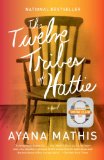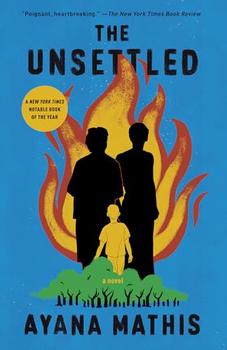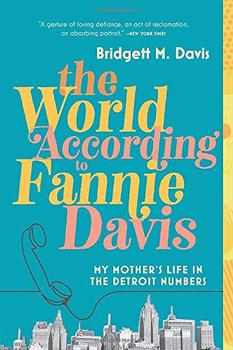Summary | Excerpt | Reading Guide | Reviews | Beyond the book | Read-Alikes | Genres & Themes | Author Bio

Ayana Mathis's debut novel The Twelve Tribes of Hattie is a stunning, penetrating portrait of a woman through the eyes of her children. Hattie arrives in Philadelphia in 1923, as part of the Great Migration, the huge tide of African Americans that left the South for other areas of the United States between 1910-1970. Full of hope for the future and amazed by the differences between her childhood home in Georgia and the progressive northern city, she marries August and has twins. She names the children Philadelphia and Jubilee to celebrate the brightness of her new life. As the story unfolds, and disappointments accrue, Hattie's initial vibrancy fades to a terse, hard-lipped discontent. Each year brings a new child and another mouth to feed. August's devotion to his wife ends at the jingle of the local juke and the sashay of another woman's skirts. Hattie's challenges seem insurmountable, but she remains devoted to her children.
In fact, devotion and its intersection with love is one of the central ruminations of the novel. As each of the children and grandchildren tells his or her own story, we see how Hattie's deep sadness as a young mother impacts her ability to connect to most of her children. She fulfills her duty towards her other children – clothes and feeds them – but she is unable to connect with them in a substantive way. As each chapter unfolds, we can see the damage wrought and understand that the narrators perceive Hattie's fulfillment of duty as an absence of love, rather than their mother's expression of it. In contrast, August is full of love for his children, greeting the announcement of each pregnancy with joy. He plays with them, laughs with them. At one point, Hattie looks on with resentment as August laughs with the children, noting that for all she has done for them, they will love August more than they love her.
The title alludes to the twelve tribes of Israel, a biblical tale about the twelve sons of Jacob, who each fathered a tribe that occupied different territories in Israel. Just as the tribes created by Jacob's sons occupied different territories but collectively composed Israel, each of Hattie's children captures disparate parts of the black experience in mid-20th century America. Mathis deftly illustrates these various examples without resorting to stereotype. The narrators speak in their own voices, and it is remarkable how Mathis captures a unique tone and voice for each character. Each child narrates an immediate reality – Franklin in Vietnam dreams about reconnecting with this estranged wife, Six preaches at a religious rally in the deep South – but each returns to experiences with Hattie.
The narrative structure of the novel is intriguing, and somewhat like a puzzle. For example, although Hattie is the titular character, she is rarely allowed the opportunity to provide her own perspective. The effect is powerful and subtle. Each chapter provides information that creates a complete picture of a proud, intelligent, and ultimately, trapped woman. By the end, we see that the novel, though told through many different voices and perspectives, is a perfect transformational arc, a process that has brought Hattie to a place of understanding and change. Some critics have argued that the novel is uneven and that a more seasoned author would have been able to tie the disparate strands of each child's tale more artfully together. Though certain elements of the novel are dropped and never reclaimed (Does musician Floyd ever find his homosexual lover Lafayette after the fight in the bar, for example), these dead ends are easily forgiven when it is considered that these chapters are not primarily about the children but about the children's interaction with and reaction to Hattie. Rather than a series of short stories told by people who, one critic argues, "do not even seem to be related," this is a unique exploration of a woman's experience from the perspective of her children. From this view, the novel's "dead ends" are seen as merely unimportant narrative strands compared to the larger purpose of describing Hattie's evolution as a woman and mother.
Hattie's growth is folded into larger explorations of the dream deferred, the transfer of pain through generations, the disappointment and regret of failed relationships. There is little happiness in this novel, but by the end it is clear that Hattie understands the role she has played in her children's lives and that more tenderness with her dutifulness would have gone a long way. The ending promises hope.
The Twelve Tribes of Hattie establishes Ayana Mathis as a gifted writer, one who will be watched with excitement. Fans of Toni Morrison and James Baldwin will find another favorite in this powerful new talent.
![]() This review was originally published in The BookBrowse Review in January 2013, and has been updated for the
October 2013 edition.
Click here to go to this issue.
This review was originally published in The BookBrowse Review in January 2013, and has been updated for the
October 2013 edition.
Click here to go to this issue.

If you liked The Twelve Tribes of Hattie, try these:

by Ayana Mathis
Published 2024
From the best-selling author of The Twelve Tribes of Hattie, a searing multi-generational novel—set in the 1980s in racially and politically turbulent Philadelphia and in the tiny town of Bonaparte, Alabama—about a mother fighting for her sanity and survival.

The World According to Fannie Davis
by Bridgett M. Davis
Published 2020
A singular memoir that tells the story of one unforgettable mother, her devoted daughter, and the life they lead in the Detroit numbers of the 1960s and 1970s.
Your guide toexceptional books
BookBrowse seeks out and recommends the best in contemporary fiction and nonfiction—books that not only engage and entertain but also deepen our understanding of ourselves and the world around us.